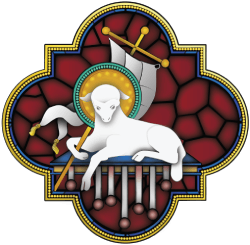July 28 | Pentecost 10, Year B
2 Sam. 11:1-15 or 2 Kgs. 4:42-44
Ps. 14 or Ps. 145:10-19
Eph. 3:14-21
John 6:1-21
Morning Prayer and Evening Prayer, along with the Holy Eucharist, constitute the principal public liturgies of the church, and in each of these celebrations, as one would expect, there is a recitation of the Lord’s Prayer. In that beloved prayer, we remind ourselves that our Father is in heaven, that is, abiding in a realm of holiness beyond which we can possibly imagine. And because heaven is the perfection of the divine will, we pray that this perfection may be realized on earth as in heaven. We begin by addressing God and then plead for the fulfillment of his will in our lives. In that sense, the prayer begins with a tone of awe and adoration focused entirely on God.
When the prayer turns to our earthly needs, the requests are notably modest. We ask for our daily bread, forgiveness, and deliverance from evil. It is the first of these that our appointed lessons set before us for special consideration. We ask for daily bread, which at one level stands in for the most basic necessities of life. We may think of daily laborers who work for a wage that will feed their families for one day. And we would do well to recall in prayer that our material sustenance comes to us as a gift from God.
There is, of course, another level of meaning to this request. We are asking for the “bread of life,” “the living bread that came down from heaven,” the eucharistic presence of Christ given to “preserve body and soul unto everlasting life.” Indeed, we are praying for the privilege of doing what we are doing right now, beseeching the Lord that we “may be partakers of his most blessed body and blood.”
For 12 years, up until the time of his death, I occasionally visited my friend and Latin instructor, Fr. Reginald Foster, who after a 40-year career as the lead Latinist in the Vatican found himself back in his hometown of Milwaukee convalescing from several complex medical conditions. He lost the ability to walk, but his mind remained as sharp as ever. One day, he started talking about the church, or rather grieving over its current state. A Carmelite monk and priest, and one uniquely privileged to know the inner workings of the church, he seemed to know everything and everyone. He mentioned the scandals in the church, which he said were nothing new. He mentioned declining vocations, declining church attendance, the closing of schools, and the general sense that things were imploding. Frustrated and despondent, he dropped his head and said, “The older I get, the more I am sick of the whole thing.” For a few moments, we sat in silence.
Then I said, “Yes, I know. But I still find the Holy Eucharist very meaningful. He lifted his head and looked right at me, and with all the conviction of his heart, he said, “Are you kidding? The Eucharist is everything!” The Eucharist is a summary of the entire story of salvation, culminating in the mystical and magnanimous gift of Christ’s very life for you and in you.
Jesus stands before a hungry crowd. He has compassion on them. “Then Jesus took the loaves, and when he had given thanks, he distributed them to those who were seated; so also the fish, as much as they wanted. When they were satisfied, he told his disciples, ‘Gather up the fragments left over, so that nothing may be lost’” (John 6:11-12).
The feeding of the crowd is a sign best interpreted in this way: “I am the living bread that came down from heaven. Whoever eats this bread will live forever, and the bread that I will give for the life of the world is my flesh” (John 6:51).
Look It Up: Psalm 145:16-17
Think About It: Christ gives his whole life for you.



